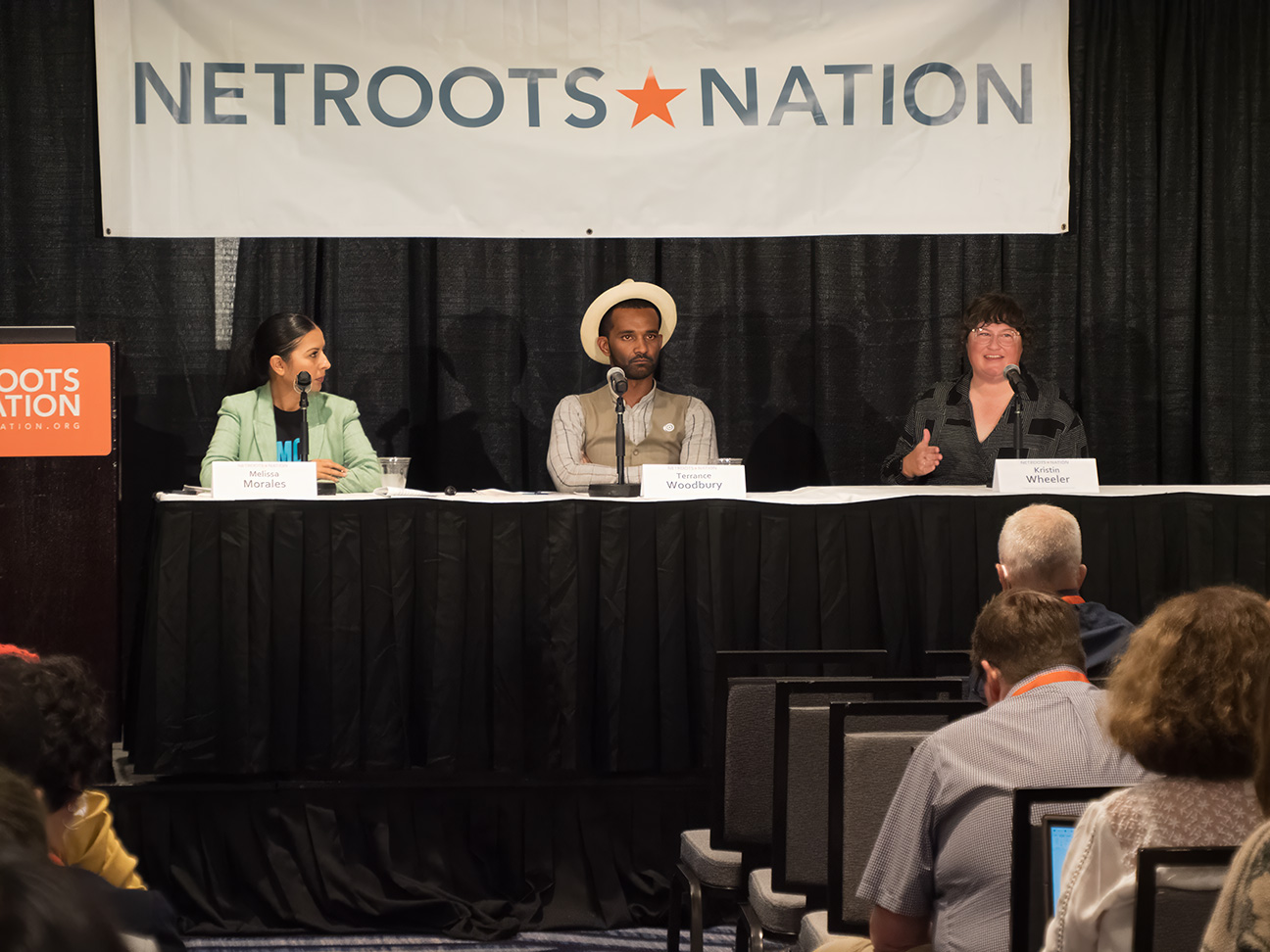Hello from Chicago!
Netroots Nation 2023 is now underway in the Windy City, with breakout sessions examining pressing issues facing our country and world.
One of those sessions, titled A Working People’s Narrative: Building a Winning Coalition Across Race and Place delved into the experiences of specific communities in America regarding voting. The panel explored how changing the narrative could influence people’s voting habits and choices.
One of the key takeaways from the discussion was the need to reframe the narrative surrounding anti-poverty initiatives. Traditionally, anti-poverty programs were viewed as government interventions to rescue individuals from poverty. However, the panel emphasized the importance of recognizing the harm of improperly framed narratives like that one. Instead, they suggested utilizing a frame centered on progressive values. For instance, a call to action could be “utilize the family tax credit to support and provide for your family.”
The words chosen, in other words, should evoke a frame of families taking control of their circumstances rather than being passive recipients of assistance.
Terrence Woodbury, the Director of HIT Strategies, was one of the panelists. He shed light on the economy as the primary driving force behind voting patterns, with a particular focus on Black voter turnout. Woodbury highlighted a significant disparity in confidence and voting outcomes between Democratic and Republican voters, showing an 18–21% difference. These statistics underlined the significance of economic concerns among black voters and their impact on political preferences. Woodbury concluded his comments by noting that older voters and women voters, irrespective of race, tend to vote more frequently.
Another panelist, Kristen Wheeler, examined the voting behavior of white women who identified as biconceptuals (“moderates”) or remained undecided.
Despite Donald Trump’s history of misogyny, racism, and corruption, and the Republican Party’s current fealty to him, Wheeler identified several factors that influenced white women to vote for Republican candidates.
These factors included economic anxiety, feelings of social insignificance, racial resentment, and negative attitudes towards transgender individuals.
The insights shared during the panel underscored the importance of understanding the intricate dynamics at play when building winning coalitions across race and place. The speakers did an excellent job emphasizing the need for political campaigns to reassess their messaging practices and word choice.
Flipping the narrative and reframing could prove instrumental in helping campaigns resonate with a broader spectrum of voters.
The folks who came to this panel had the opportunity to deepen their understanding of the complexities surrounding voter behavior. Hopefully, attendees will become ambassadors for the idea that a winning coalition must be built on a foundation of empathy, inclusion, and an unwavering commitment to addressing the economic concerns that impact the lives of working people.

